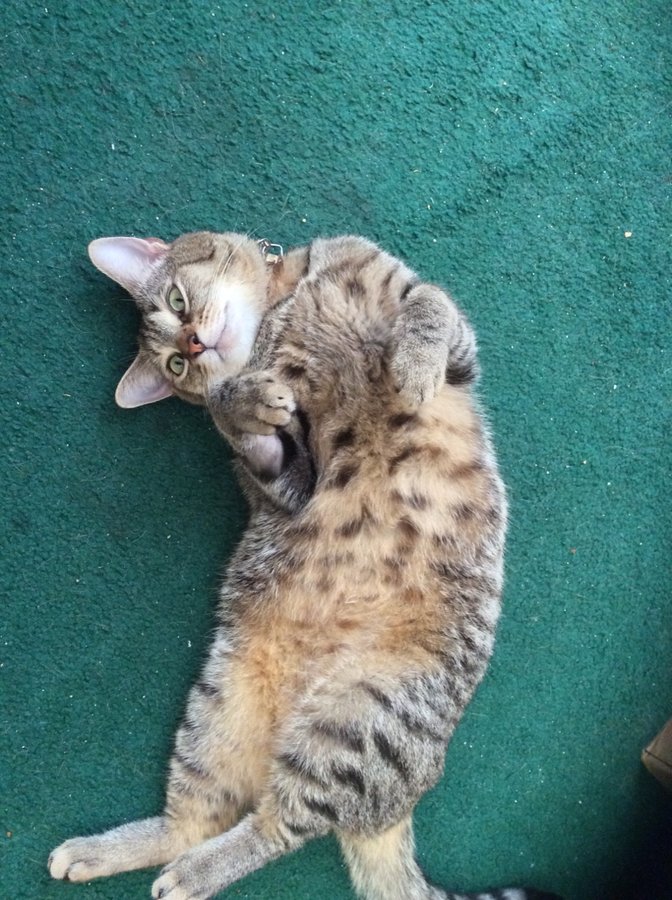- Joined
- Jan 28, 2015
- Messages
- 23
- Purraise
- 3
Hi there! I have a 2yr old male cat who recently started having urinary trouble, no crystals, and was recently obstructed with a mucous plug. The vet thinks it's more inflammatory since his urethra was very small when the urinary catheter was passed, and the fact that the urinalysis showed no blood when I first noticed him having a problem and no crystals. I had recently changed his food maybe a month or two prior, so I'm in the process of changing it back, even if it wasn't dietary he never had a problem on the old food so why not. I've also upped his wet food intake from one in a while to twice a day as his main meal, adding water and glucosamine chondroitin in it. Before he got blocked he was on an anti-inflammatory/pain reliever for three days, as well as I have been separating him from the kitten who lately has been bothering the crap out of him (another reason why she thought it was inflammatory- because of the stress and the sudden urge for Figs to dart outside). What's probably not helping is a few days before he completely blocked we made a split decision to move, so keeping the environment less stressful is a little more of a challenge.
Right now Figs is getting prednisone to hopefully decrease the inflammation, it's day three on the pred and the second day with no urinary catheter and Figs is still urinating small, frequent amounts in the litterbox. When I left in the spare room overnight the urine clumps seemed to be a little bigger, so I'm trying to keep him as calm and as stress free as possible. I'm trying to give the meds some time to work, and I'm defiently going to give my vet an update on Monday regardless if he's doing better, and I'm keeping an eye out to make sure he doesn't fully block again. But how long is too long that he still is urinating small frequent amounts? Also I'm seriously considering plugging in a feliway, it can't hurt right?
Is there anyone who could give me any other advise, or is having/had similar problems with their kitties? In a way I wish he did have stone or a bacterial infection, that way it could be cleared up with diet/antibiotics, but this is frustrating and is making me feel like a bad pet owner. If he reblocks again we may be considering a PU.
Right now Figs is getting prednisone to hopefully decrease the inflammation, it's day three on the pred and the second day with no urinary catheter and Figs is still urinating small, frequent amounts in the litterbox. When I left in the spare room overnight the urine clumps seemed to be a little bigger, so I'm trying to keep him as calm and as stress free as possible. I'm trying to give the meds some time to work, and I'm defiently going to give my vet an update on Monday regardless if he's doing better, and I'm keeping an eye out to make sure he doesn't fully block again. But how long is too long that he still is urinating small frequent amounts? Also I'm seriously considering plugging in a feliway, it can't hurt right?
Is there anyone who could give me any other advise, or is having/had similar problems with their kitties? In a way I wish he did have stone or a bacterial infection, that way it could be cleared up with diet/antibiotics, but this is frustrating and is making me feel like a bad pet owner. If he reblocks again we may be considering a PU.


